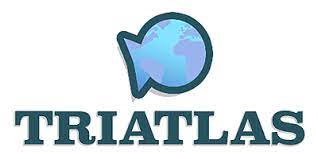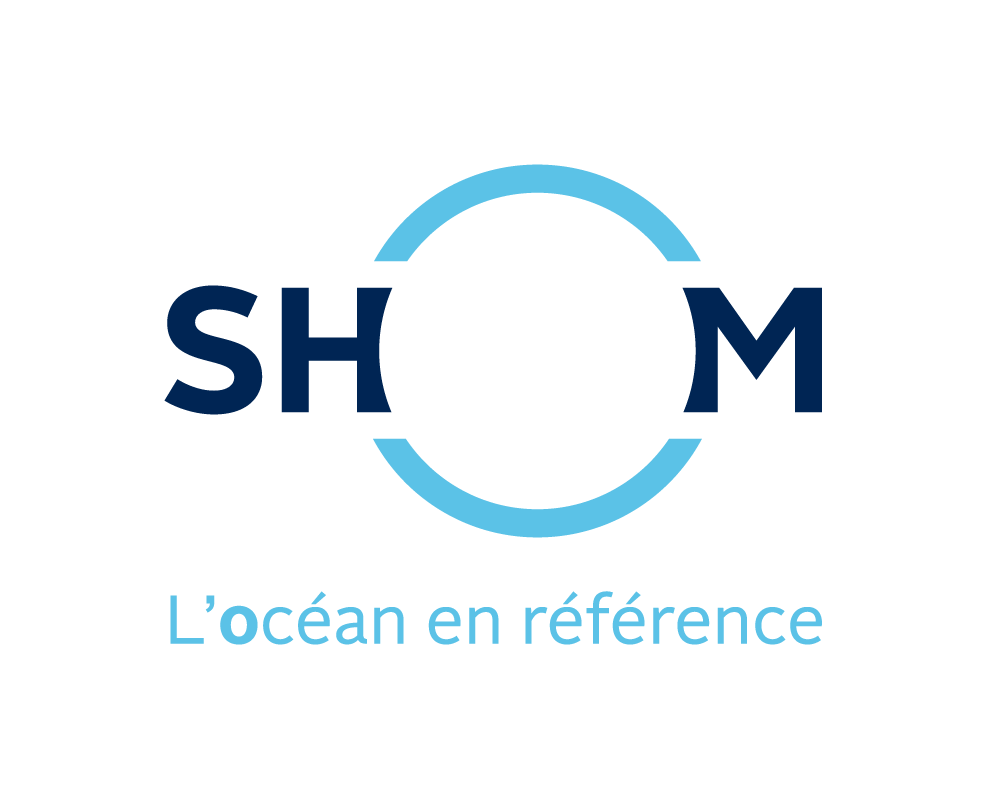initiative
Type of resources
Available actions
Topics
INSPIRE themes
Keywords
Contact for the resource
Provided by
Years
Representation types
status
-

The vision of the AtlantOS project was to improve and innovate Atlantic observing by using the Framework of Ocean Observing to obtain an international, more sustainable, more efficient, more integrated, and fit-for-purpose system contributing to the Trans-Atlantic Research Alliance, the GEO (Group on Earth Observations) global initiative Blue Planet, and GOOS (Global Ocean Observing Systems). Hence, the AtlantOS project will have a long-lasting and sustainable contribution to the societal, economic and scientific benefit arising from this integrated approach. This will be achieved by improving the value for money, extent, completeness, quality and ease of access to Atlantic Ocean data required by industries, product supplying agencies, scientists and citizens. The overarching target of the AtlantOS initiative was to deliver an advanced framework for the development of an integrated Atlantic Ocean Observing System that goes beyond the state-of–the-art, and leaves a legacy of sustainability after the life of the project (see AtlantOS High-Level Strategy and find out more about the AtlantOS program). The legacy derived from the AtlantOS aims: - to improve international collaboration in the design, implementation and benefit sharing of ocean observing, - to promote engagement and innovation in all aspects of ocean observing, - to facilitate free and open access to ocean data and information, - to enable and disseminate methods of achieving quality and authority of ocean information, - to strengthen the Global Ocean Observing System (GOOS) and to sustain observing systems that are critical for the Copernicus Marine Environment Monitoring Service and its applications and - to contribute to the aims of the Galway Statement on Atlantic Ocean Cooperation The project was organized along work packages on: i) observing system requirements and design studies, ii) enhancement of ship-based and autonomous observing networks, iii) interfaces with coastal ocean observing systems, iv) integration of regional observing systems, v) cross-cutting issues and emerging networks, vi) data flow and data integration, vii) societal benefits from observing /information systems, viii) system evaluation and resource sustainability. Engagement with wider stakeholders including end-users of Atlantic Ocean observation products and services was also key throughout the project. The AtlantOS initiative contributed to achieving the aims of the Galway Statement on Atlantic Ocean Cooperation that was signed in 2013 by the EU, Canada and the US, launching a Transatlantic Ocean Research Alliance to enhance collaboration to better understand the Atlantic Ocean and sustainably manage and use its resources.
-

The Sea Around Us is a research initiative at The University of British Columbia (located at the Institute for the Oceans and Fisheries, formerly Fisheries Centre) that assesses the impact of fisheries on the marine ecosystems of the world, and offers mitigating solutions to a range of stakeholders. The Sea Around Us was initiated in collaboration with The Pew Charitable Trusts in 1999, and in 2014, the Sea Around Us also began a collaboration with The Paul G. Allen Family Foundation to provide African and Asian countries with more accurate and comprehensive fisheries data. It provides data and analyses through View Data, articles in peer-reviewed journals, and other media (News). We regularly update our products at the scale of countries’ Exclusive Economic Zones, Large Marine Ecosystems, the High Seas and other spatial scales, and as global maps and summaries. It emphasises catch time series starting in 1950, and related series (e.g., landed value and catch by flag state, fishing sector and catch type), and fisheries-related information on every maritime country (e.g., government subsidies, marine biodiversity). Information is also offered on sub-projects, e.g., the historic expansion of fisheries, the performance of Regional Fisheries Management Organizations, or the likely impact of climate change on fisheries. The information and data presented on this website is freely available to any user, granted that its source is acknowledged. We are aware that this information may be incomplete. Please let us know about this via the feedback options available on this website.
-

The indiSeaS project is co-funded by the Intergovernmental Oceanographic Commission (IOC), the European Network of Excellence Euroceans, “'Institut de recherche pour le développement (IRD)” and the European project on Marine Ecosystem Evolution in a Changing Environment (MEECE). It is a multi-institutes collaborative effort. Scientific experts on ecosystems all over world calculate indicators and provide background information. The IndiSeas project aims at "Evaluating the status of marine ecosystems in a changing world”, using a set of different types of indicators to reflect the effects of multiple drivers on the states and trends of marine exploited ecosystems. It focuses on the effects of fishing, use of ecology, biodiversity, as well as climate and socio-economic indicators on world's marine ecosystems health. The objectives are to review IndiSeas datasets, present preliminary results to regional experts, discuss methods to be developed in each of the six task groups, establish work and publication plans for the future. Expertise from over 70 scientists, 49 research institutes and 36 countries.
-

The Department of Environment, Forestry and Fisheries (DEFF) and the Department of Science and Innovation (DSI) have initiated the development of the National Oceans and Coastal Information Management System (OCIMS) for South Africa – referred to as the OCIMS project. The OCIMS project forms part of the Operation Phakisa Marine Protection Services and Oceans Governance workstream Initiative 6: “National Ocean and Coastal Information System and Extending Earth Observation Capability” action plan that is endorsed by Cabinet. Operation Phakisa focuses on unlocking the economic potential of South Africa’s oceans. OCIMS will support a variety of oceans and coastal initiatives by providing information and decision support to key stakeholders for the day-to-day management of South Africa’s oceans and coasts. The project outcomes will be achieved through the development of an Information Management System (IMS) that will integrate current and future oceans and coastal systems, information and expertise into a user-friendly and cost-effective IMS for the benefit of relevant stakeholders. In June 2015, the Council for Science and Industrial Research (CSIR) was nominated by DEFF as a service provider to facilitate the implementation of the project and to co-develop OCIMS. OCIMS project vision: Develop a locally relevant and globally cognisant technological solution that supports the ecological conservation and economic potential of South Africa’s oceans and coasts through information and decision-support for effective governance.
-

Maritime Spatial Planning (MSP) is globally recognised as a crucial tool for managing human uses and activities in maritime space, with the aim of supporting sustainable growth and development in the maritime sector and conscious use of marine and coastal resources. MSP identifies where and when human uses and activities take place in maritime space today and may take place in the future. GeoPortal SIGMAR offers a view of the maritime space of the Azores and its uses.
-

Infield Systems, now part of Wood Mackenzie (for the full news story please follow this link), is an energy research and analysis firm that is dedicated to the provision of accurate and up-to-date information, databases, research, market forecasts, mapping, commercial market due-diligence, transaction support, business strategy, analysis and intelligence to the global offshore oil, gas, renewable energy and associated marine industries. Over the past 25 years Infield Systems has developed an extensive range of products and services to assist industry professionals, analysts and investors with their business and investment decisions. Within its core markets, Infield Systems has become widely acknowledged as one of the definitive resources of information, research and analysis. Infield Systems services clients from a wide range of organisations including exploration and production companies, service suppliers, offshore contractors, manufacturers, government agencies, financial institutions and investors. In addition Infield provides information, analysis and commentary for the energy trade press and at industry conferences through presentation of papers and keynote speeches. Products and services are broadly divided into the following key areas: - Data Services - Research - Business Strategy & Analysis - Transaction Services
-

MarSP project intends to reinforce the Maritime Spatial Planning (MSP) processes in the three EU Macaronesian Archipelagos - Azores, Madeira and Canary Islands. MarSP aims to assists the competent authorities of Portugal (Azores and Madeira) and Spain (Canary Islands) on promoting the development of operative mechanisms of Maritime Spatial Planning (MSP) until 2021. Aligned with the European MSP Directive 2014/89/EU and EASME call for MSP Cross-Border cooperation for outermost regions, MarSP will focus in the cooperation of the three regions of Macaronesia (Azores, Madeira and the Canary Islands) to ensure a coherent and coordinated MSP process, taking into account the transnational issues. These three regions of the Macaronesia have been developing their own planning processes according to the Directive 2014/89/EU, national legislation and governance frameworks, which are remarkably different. Currently, each archipelago is in distinct stages of development of MSP implementation. For this reason, a complete homogenization of the approaches for the three regions is not possible and neither desirable. On the other hand, this discrepancy may represent a strong point in this project, since facing distinct MSP processes, designed to deal with similar problems, due to the same geographic context, but at distinct stages of development, will certainly bring a testing dimension to the project that is not negligible.
-

To assess the status of the South and Tropical Atlantic marine ecosystem and develop a framework for predicting its future changes, from months to decades, by combining ecosystem observations, climate-based ecosystem prediction and information on future socio-economic and ecosystem service changes, and thus to contribute to the sustainable management of human activities in the Atlantic Ocean as a whole. TRIATLAS contributes to this by delivering knowledge of the current state and future changes of the Atlantic marine ecosystems. We achieve this goal through a basin-wide approach that integrates research from the North and South, and that closes critical knowledge gaps in the Tropical and South Atlantic that impede an understanding of the entire basin. 33 partners from 13 countries Project duration: June 2019 – May 2023 Monthly model biomass values for the best fitted Ecosim model of the Southern Benguela ecosystem for the period 1978-2015. The model was driven by fishing effort/mortality and a forcing function applied to phytoplankton, based on a cumulative upwelling index, and was fitted to available catch and abundance time-series data.
-
The Continuous Plankton Recorder (CPR) Survey is the most geographically extensive marine monitoring programme in the world. Today the Survey is operated by the Marine Biological Association, based in Plymouth, UK. Operating since 1931, the Continuous Plankton Recorder (CPR) survey is recognised as the longest sustained and geographically most extensive marine biological survey in the world. The dataset comprises a uniquely large record of marine biodiversity covering ~800 taxa over multi-decadal periods. In terms of our scientific understanding of natural variability and human-induced change on our oceans, the CPR survey is of global importance and it is used by scientists, policy makers and environmental managers across the world. The data is used to examine strategically important science pillars such as climate change, human health, fisheries, biodiversity, pathogens, invasive species, ocean acidification and natural capital. The results have included the globally first documented studies of large-scale ecological regime shifts, and of biogeographic, phenological and trans-arctic migrations in the marine environment in response to climate change. The data in this sampling event resource has been published as a Darwin Core Archive (DwC-A), which is a standardized format for sharing biodiversity data as a set of one or more data tables. The core data table contains 252,385 records. 2 extension data tables also exist. An extension record supplies extra information about a core record. The number of records in each extension data table is illustrated below.
-

Les cartes bathy-morphologiques et les cartes des formations superficielles sont réalisées à partir des informations recueillies au cours de campagnes à la mer (données géophysiques, sismiques et prélèvements).
 Metadata catalogue
Metadata catalogue